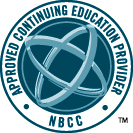
Building Professional Excellence

Adolescent Grief: Developmental and Cultural Considerations
Grief, the multifaceted response to significant loss, affects individuals across the lifespan. Fortunately, research focusing on this area is burgeoning; however, much of it centers on adult grief, potentially leaving adolescent mourners disenfranchised and misunderstood. Adolescent grief is uniquely impacted by factors such as cognitive, emotional, and psychosocial development; risks and protective factors; embeddedness within multiple contexts, such as school, family and neighborhood; societal messages about who is allowed to mourn and in what ways; and family culture. Counselors working with adolescents need to understand the unique characteristics of adolescent grief, its influences, and ways to help facilitate healthy coping.
During this session, participants will learn:
- How the developmental context of adolescence intersects with grief to create a unique, specific response to loss
- How adolescents’ family culture impacts their experience and expression of grief.
- Other factors influencing adolescent grief (e.g., wider societal messages about grief and embeddedness within multiple contexts).
- Roles counselors can play in facilitating adaptive coping and positive meaning-making for grieving adolescents.

Laura S. Wheat, Ph.D., NCC, LPC
Laura S. Wheat is assistant professor of counselor education at the University of Tennessee, Knoxville. She coordinates the college’s Grief Outreach Initiative (GOI), a service learning opportunity for any student enrolled in the university, graduate or undergraduate, to provide one-on-one support and mentorship to a grieving K–12 student in the local school system. She is currently conducting outcome research on GOI activities and is working to implement a grief camp for children and adolescents. Dr. Wheat has worked as a school counselor in York, South Carolina, in addition to teaching in the counselor education programs at Winthrop University, in Rock Hill, South Carolina, and Augusta University, in Georgia. She has presented and published on grieving children and adolescents for the past nine years. She currently serves as a member of the board of directors of the Association for Death Education and Counseling (ADEC).
Q & ATherapeutic Approaches to Trauma
Surprising neuroscience discoveries have revealed the key to resolving traumatic memories and are changing the way therapists treat trauma. In this webinar, participants will get up to date on these exciting brain science discoveries. Attendees will learn the three-phase model of trauma-informed treatment and a simple five-step process to help clients safely and painlessly resolve traumatic memories.
During this session, participants will learn:
- Why exposure techniques alone are not enough to relieve post-traumatic stress and reconsolidate traumatic memories.
- The three phases of trauma-informed treatment.
- The five-step process that all effective trauma therapies have in common and how to use it to safely and painlessly reconsolidate traumatic memories.
- One example of how to creatively heal traumatic memories using imagery, storytelling, music or movement.
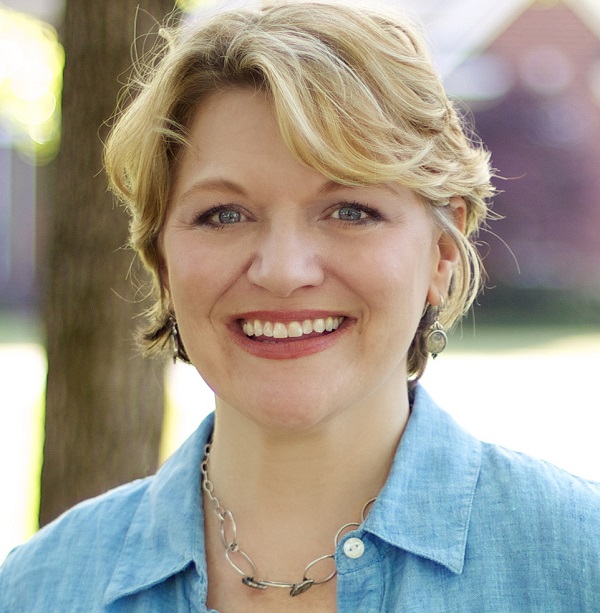
Courtney Armstrong, M.Ed., NCC, LPC
Courtney Armstrong is a licensed professional counselor in Tennessee and a National Certified Counselor (NCC) who specializes in grief and trauma recovery. With a career spanning more than two decades, she owns and directs Tamarisk Counseling Center, in Chattanooga, Tennessee, and has helped thousands of clients overcome trauma, grief and anxiety, and experience deep personal transformation. Ms. Armstrong also offers face-to-face and online training to mental health professionals, showing them how to help their clients to clear underlying trauma that may be affecting their health, their relationships and their lives in general. Her professional expertise has made her a much sought-after media guest, appearing on CBS Radio News, NPR, Shrink Rap Radio and The Trauma Therapist Podcast, among others. Ms. Armstrong has also contributed to professional publications such as Psychotherapy Networker, The Neuropsychotherapist and Counseling Today, and is the author of Transforming Traumatic Grief (2011) and her latest book, The Therapeutic “Aha!”: 10 Strategies for Getting Your Clients Unstuck (2015).
Q & AIdentifying and Treating Gambling Addiction
This session will cover the epidemiology, diagnosis and treatment of pathological gambling.
During this session, participants will learn about:
- The biopsychosocial nature of problem gambling.
- Risk factors associated with pathological gambling.
- Effective interventions with problem gambling.
- Special populations with gambling problems.
- Special considerations with problem gambling.
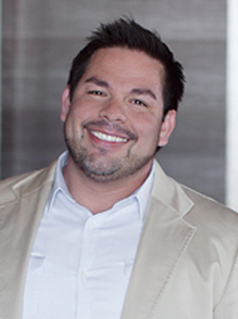
Oscar Flores Sida, M.S., NCC, LCPC, LCADC, CPGC
Oscar Flores Sida is a bilingual mental health and addictions counselor, native to Las Vegas, Nevada. He is a National Certified Counselor (NCC), licensed clinical professional counselor, licensed alcohol and drug counselor, and certified problem gambling counselor. Currently, he holds a position as a full-time faculty member and program coordinator for human services in the Department of Education and Clinical Studies at the University of Nevada, Las Vegas (UNLV), where he teaches in the area of addictive disorders and mental health. Mr. Sida is the clinical supervisor at “The Practice,” a community mental health clinic at UNLV, and works in private practice as a mental health and substance abuse counselor. He has specialized in the treatment of process addictions and psychological trauma for the past five years and worked extensively with clients suffering from problem gambling and related issues. He has been featured in television and film for his expertise in the area of gambling and has presented as a speaker at national conferences. Mr. Sida holds a Master of Science degree in clinical mental health counseling and a Bachelor of Science in psychology, both from UNLV.
Q & AUsing Play Therapy for Affect Regulation
This workshop will demonstrate how to identify and treat dysregulated and traumatized children. A model for structuring play therapy sessions will be presented. Somatosensory play activities, water/mud trays, EMDR, feeding and emotional attunement are some recommended play activities that can help this population repattern the lower regions of the brain and prepare for more traditional psychodynamic or cognitive behavioral therapies.
During this session, participants will:
- Learn what affect regulation means.
- Learn how to identify affect dysregulation.
- Learn different play therapy activities to help a dysregulated child.
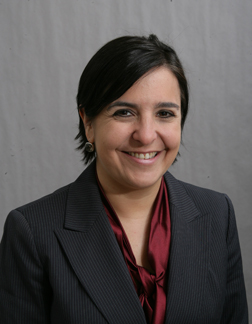
Heloisa Portela, Ph.D., NCC, ACS, LPCS
Heloisa Portela started as a clinical psychologist in Brazil before becoming a licensed professional counselor supervisor (LPCS) in North Carolina, where she is a private practitioner and professor. She is a National Certified Counselor and an Approved Clinical Supervisor. Dr. Portela is past president of the North Carolina Association for Play Therapy and a former Play Therapy Magazine reviewer. She is currently an APT Conference Program Committee member and International Journal of Play Therapy reviewer. Working with attachment-disordered children and their families is one of her specialties. She also teaches graduate play therapy classes at North Carolina Central University.
Q & AThe Science of Well-Being: Positive Psychology Strategies for Increasing Meaning and Achievement
This webinar will explore meaning and achievement, two of the pillars of positive psychology. Research has demonstrated that a subjective sense of meaning is strongly correlated with happiness. Meaning includes using one’s best qualities to belong to and serve something bigger (the larger world and society), connection to positive institutions (e.g., religion, politics, family and community), a future focus, altruism, and the like. Achievement, or accomplishment, occurs over a lifetime and includes competence, mastery and development of new skills.
Participants in this webinar will learn practical strategies that can be used with clients or as personal tools to strengthen engagement and relationships as a means of improving quality of life. The examples offered are applicable to educational, military, behavioral health and social service settings.
At the end of the session, the participant will be able to:
- Describe two forms of meaning that are associated with well-being.
- Identify two strategies to increase meaning.
- Describe how achievement can increase well-being.

Bob Bertolino, Ph.D., NCC, LPC
Bob Bertolino is associate professor of rehabilitation counseling at Maryville University, senior clinical advisor at Youth In Need, Inc. and senior associate for the International Center for Clinical Excellence. He has taught more than 400 workshops throughout the United States and 11 countries and authored or coauthored 14 books, including The Therapist’s Notebook on Positive Psychology: Activities, Exercises, and Handouts; Strengths-Based Engagement and Practice: Creating Effective Helping Relationships; and Thriving on the Front Lines: Strengths-Based Youth Care Work. Dr. Bertolino is licensed as a marital and family therapist and professional counselor in the state of Missouri and is a National Certified Counselor.
Q & ALiving With What I've Done: Navigating Moral Injury with ACT and Forgiveness Exercises (Part 2)
Upon returning from active duty, service members can experience a host of challenges. Be it reintegrating with loved ones, recalibrating to life outside the combat zone, or struggling with such things as moral injury or self-medicating behaviors, these individuals often have difficulty reaching out for help. Given the military culture of strength, honor and self-discipline, the idea of admitting to a problem is often foreign, which might result in their avoiding treatment. The internalized shame and guilt over actions taken under fire can lead to the phenomenon of moral injury. Increasingly acknowledged as the signature wound of this generation of veterans, moral injury has been likened to a bruise on the soul, leading to lasting impacts on individuals and their families.
Although the development of informed treatment options for moral injury is in its infancy, one option that warrants consideration is acceptance and commitment therapy (ACT). Using mindfulness techniques and self-forgiveness exercises, ACT helps clients to move past their suffering by targeting shame and avoidance behaviors and teaching them to be psychologically flexible—to “live with” what occurred rather than trying to eliminate reality. Presented by a combat-experienced Marine, this two-part webinar will offer the necessary tools to help clinicians implement ACT and forgiveness strategies for their clients who are experiencing moral injury. Part 1 will examine moral injury and the basic tenets of ACT, and Part 2 will explore various mindfulness techniques and self-forgiveness exercises to use with those struggling with moral injury.
In Part 2 of this two-part webinar attendees will learn and explore ways to address moral injury through:
- Various ACT techniques;
- Self-forgiveness exercises; and
- Mindfulness techniques.
Additional topics include:
- Integration strategies with other helping philosophies; and
- Challenges of using forgiveness activities in various settings.
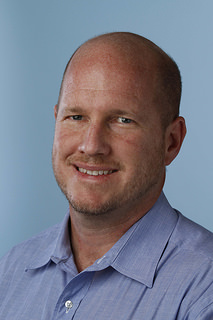
Bryce Hagedorn, Ph.D., NCC, MAC, LMHC
Bryce Hagedorn is a National Certified Counselor, a Master Addictions Counselor, and a licensed mental health counselor and qualified clinical supervisor in the state of Florida. He holds his Ph.D. in counseling and counselor education from the University of North Carolina at Greensboro. Currently serving as the program director of counselor education and school psychology at the University of Central Florida, in Orlando, Dr. Hagedorn has served on a variety of state, regional and national organizations dedicated to addictions, spirituality and counseling. Over the past 15 years, Dr. Hagedorn has worked in a variety of clinical settings, including private practice, community mental health clinics, inpatient/outpatient hospitals, intensive outpatient programs, and college counseling centers in the areas of his specialties, chemical and process addictions.
A nationally and internationally recognized speaker and author, Dr. Hagedorn has written more than 50 articles and book chapters, has presented more than 130 times at the international, national, regional, state and local levels, and is co-author of the book Counseling Addicted Families. As a former U.S. Marine who has experienced combat himself, Dr. Hagedorn offers an important perspective to help train counselors to effectively engage service members and veterans in the counseling process.
Living With What I've Done: Navigating Moral Injury with ACT and Forgiveness Exercises (Part 1)
Upon returning from active duty, service members can experience a host of challenges. Be it reintegrating with loved ones, recalibrating to life outside the combat zone, or struggling with such things as moral injury or self-medicating behaviors, these individuals often have difficulty reaching out for help. Given the military culture of strength, honor and self-discipline, the idea of admitting to a problem is often foreign, which might result in their avoiding treatment. The internalized shame and guilt over actions taken under fire can lead to the phenomenon of moral injury. Increasingly acknowledged as the signature wound of this generation of veterans, moral injury has been likened to a bruise on the soul, leading to lasting impacts on individuals and their families.
Although the development of informed treatment options for moral injury is in its infancy, one option that warrants consideration is acceptance and commitment therapy (ACT). Using mindfulness techniques and self-forgiveness exercises, ACT helps clients to move past their suffering by targeting shame and avoidance behaviors and teaching them to be psychologically flexible—to “live with” what occurred rather than trying to eliminate reality. Presented by a combat-experienced Marine, this two-part webinar will offer the necessary tools to help clinicians implement ACT and forgiveness strategies for their clients who are experiencing moral injury. Part 1 will examine moral injury and the basic tenets of ACT, and Part 2 will explore various mindfulness techniques and self-forgiveness exercises to use with those struggling with moral injury.
Part 1 of this two-part webinar will focus on introducing the problem (moral injury) and a theoretical approach that offers solutions (acceptance and commitment therapy). In exploring moral injury, attendees will:
- Learn the various definitions and causes;
- Examine how it differs from PTSD;
- Review the current treatment options to address it; and
-
Be introduced to suicide risk and protective factors specific to service members.
- Theoretical principles; and
- Primary techniques (e.g., mindfulness processes and commitment processes).

Bryce Hagedorn, Ph.D., NCC, MAC, LMHC
Bryce Hagedorn is a National Certified Counselor, a Master Addictions Counselor, and a licensed mental health counselor and qualified clinical supervisor in the state of Florida. He holds his Ph.D. in counseling and counselor education from the University of North Carolina at Greensboro. Currently serving as the program director of counselor education and school psychology at the University of Central Florida, in Orlando, Dr. Hagedorn has served on a variety of state, regional and national organizations dedicated to addictions, spirituality and counseling. Over the past 15 years, Dr. Hagedorn has worked in a variety of clinical settings, including private practice, community mental health clinics, inpatient/outpatient hospitals, intensive outpatient programs, and college counseling centers in the areas of his specialties, chemical and process addictions.
A nationally and internationally recognized speaker and author, Dr. Hagedorn has written more than 50 articles and book chapters, has presented more than 130 times at the international, national, regional, state and local levels, and is co-author of the book Counseling Addicted Families. As a former U.S. Marine who has experienced combat himself, Dr. Hagedorn offers an important perspective to help train counselors to effectively engage service members and veterans in the counseling process.
Q & AUtilizing Distance Counseling for Rural and Military Populations
The practice of distance counseling has grown in popularity over the past few years, because the application of these technologies has endless possibilities for mental health services. The widespread availability of the Internet gives individuals the ability to seek counseling services from the comfort of their own home. This webinar will examine the practice of distance counseling and the great need to increase the number of mental health practitioners who are trained in this counseling modality. Special emphasis will be on the mental health challenges faced by rural and military populations.
After this session, participants will:
- Understand the mental health challenges of rural and military populations.
- Understand a brief history of distance counseling and its effectiveness
- Understand a brief history of distance counseling and its effectiveness.
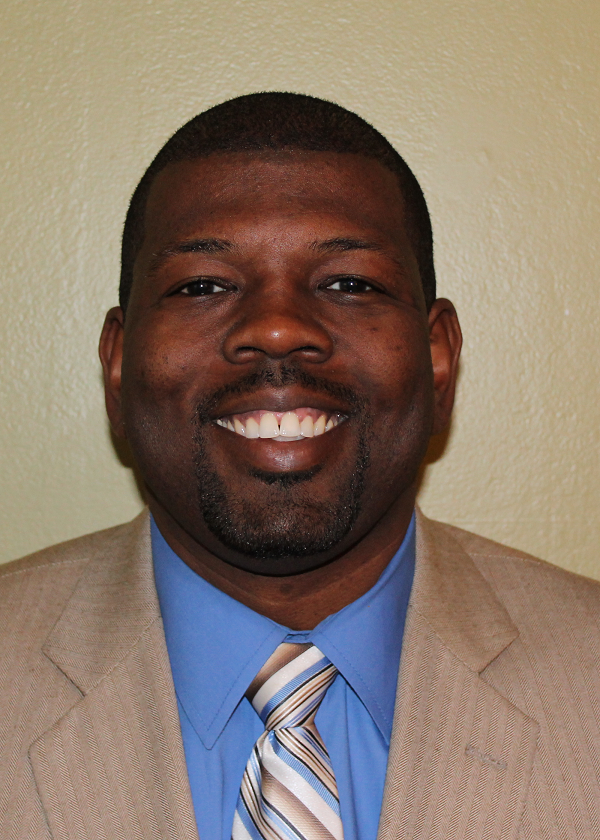
Michael Jones, M.A., NCC, DCC, LP
Michael Jones, a 2013 NBCC Minority Fellowship Program (MFP) Fellow, is a licensed professional counselor, National Certified Counselor and Distance Credentialed Counselor. He is a current doctoral candidate in counselor education and supervision at Regent University in Virginia Beach, Virginia. He is also a counseling faculty member at Messiah College in Mechanicsburg, Pennsylvania. He received his M.A. in clinical pastoral counseling from Ashland Theological Seminary in Ohio. Mr. Jones’ work experience includes more than 12 years in mental health and pastoral counseling. He frequently presents on a variety of topics at the national, regional and state levels. In addition, he maintains a private practice providing distance counseling, supervision and continuing education for mental health professionals. Mr. Jones' professional research and counseling interests include distance counseling and supervision, ethics, private practice consultations, and multicultural issues.
Q & AUnderstanding Suicide and Prevention in Service Members
Preventing suicide among service members has been a focus of the Department of Defense (DOD) for many years, particularly in response to an increase of suicides among service members and veterans in the past decade. Prevention and intervention are often discussed in training, but helping counselors understand the mind of a suicidal warrior is an area less frequently addressed. This webinar will focus on helping those who respond to service members in suicidal crisis to understand the thought processes in reaching that point, the challenges to communication between warrior language and mental health language, factors that contribute to suicide among service members, and suicide risk and protective factors unique to this population. This webinar is designed to assist counselors in understanding and developing an effective alliance with the service member in suicidal crisis.
During this session, participants will:
- Learn about the communication challenges posed by the differences in warrior language and mental health language.
- Become familiar with the thought processes of a service member that can lead to suicide.
- Learn to identify specific factors that contribute to a service member’s suicide.
- Be introduced to suicide risk and protective factors specific to service members.

Mary Bartlett, Ph.D., NCC, LPC
Mary Bartlett holds a master’s degree in counseling from the University of Maryland at College Park and a doctorate in counselor education from Auburn University in Auburn, Alabama. She is a licensed professional counselor in Alabama and a National Certified Counselor, as well as a mental health consultant, researcher and trainer. Currently, Dr. Bartlett is visiting assistant professor of graduate counseling at the University of Alabama at Birmingham and an adjunct therapist at Castlewood at The Highlands Eating Disorder Treatment Center, also in Birmingham. She is a master trainer for the Suicide Prevention Resource Center, and is a qualified master resilience trainer.
Dr. Bartlett is an international speaker and has published research, manuscripts and book chapters in the field of suicide prevention. She has extensive clinical experience in the areas of suicide, resilience and various mental health topics and assists Department of Defense leadership on these matters. Dr. Bartlett has held various faculty and teaching positions throughout Alabama. She is a member of the Academy for Eating Disorders (AED), co-chair of the AED suicide prevention special interest group, a board member of the ethics committee for the International Association of Eating Disorders Professionals, a committee member of the workplace postvention task force of the American Association of Suicidology, and on the advisory board of the Alabama chapter for the American Foundation for Suicide Prevention.
Q & AMindfulness: A Promising Intervention for Trauma, ADHD, Depression and Anxiety
In this webinar, counselors will learn about mindfulness meditation as a promising intervention for the treatment of trauma, ADHD, depression and anxiety. The theoretical underpinnings of mindfulness-based interventions will be explored. Specific mindfulness skills for the treatment of the above disorders will be shared. This webinar is the third module in a series of mindfulness webinars. The first two modules, Mindfulness and Counselor Self-Care and Experiencing Mindfulness are currently available for viewing on CCE Academy, under the Building Professional Excellence tab.
After this session, participants will:
- Be able to identify the theoretical underpinnings of mindfulness-based treatment.
- Understand how mindfulness can reduce suffering.
- Understand specific mindfulness tools that can be utilized with clients who struggle with various disorders.

Corinne Zupko, Ed.S., NCC, BCC, LPC
Corinne Zupko is an adjunct professor of counselor education at The College of New Jersey (TCNJ), where she has developed and taught classes focusing on wellness and mindfulness at the graduate and undergraduate levels. She earned her B.A. in psychology from TCNJ, her M.A. in counseling from TCNJ, and her Ed.S. in counseling with a concentration in meditation from Rider University. Ms. Zupko is a licensed professional counselor in New Jersey, a National Certified Counselor and a Board Certified Coach.Ms. Zupko has presented on mindfulness at many professional conferences including the American School Counselor Association and the New Jersey Counseling Association, and she was a recent keynote speaker at the New Jersey Association for Multicultural Counseling. Her interests include the topics of wellness, mindfulness, and spirituality in counseling. Ms. Zupko teaches mindfulness-based stress reduction classes in her community, and has produced a series of five-minute mindfulness meditation recordings for busy people.
Q & AThe Science of Well-Being: Positive Psychology Strategies for Increasing Engagement and Strengthening Relationships
This webinar explores engagement and relationships, the second and third pillars of positive psychology. Research has demonstrated that experiential absorption and immersion in specific focused activities can increase creativity, problem-solving and overall well-being. Similarly, the quality of social connections correlates to increased life satisfaction and lower rates of depression, anxiety and insomnia. Participants in this webinar will learn practical strategies that can be used with clients or as personal tools to strengthen engagement and relationships as a means of improving quality of life. Included examples are applicable to educational, military, behavioral health and social service settings.
After this session, participants will be able to:
- Describe two ways that better engagement and relationships benefit clients.
- Identify two ways to help clients increase engagement.
- Identify two strategies to strengthen relationships and social connections.

Bob Bertolino, Ph.D., NCC, LPC
Bob Bertolino is associate professor of rehabilitation counseling at Maryville University, senior clinical advisor at Youth In Need, Inc. and senior associate for the International Center for Clinical Excellence. He has taught more than 400 workshops throughout the United States and 11 countries and authored or coauthored 14 books, including The Therapist’s Notebook on Positive Psychology: Activities, Exercises, and Handouts; Strengths-Based Engagement and Practice: Creating Effective Helping Relationships; and Thriving on the Front Lines: Strengths-Based Youth Care Work. Dr. Bertolino is licensed as a marital and family therapist and professional counselor in the state of Missouri and is a National Certified Counselor.
Q & ANBCC Foundation has been approved by NBCC as an Approved Continuing Education Provider, ACEP No. 805. Programs that do not qualify for NBCC credit are clearly identified. NBCC Foundation is solely responsible for all aspects of the programs.
Each state sets its own requirements for licensure, including continuing education requirements to maintain licensure. Questions about CE requirements for state licensure should be directed to your state board. You can find their contact information on our state board directory.
